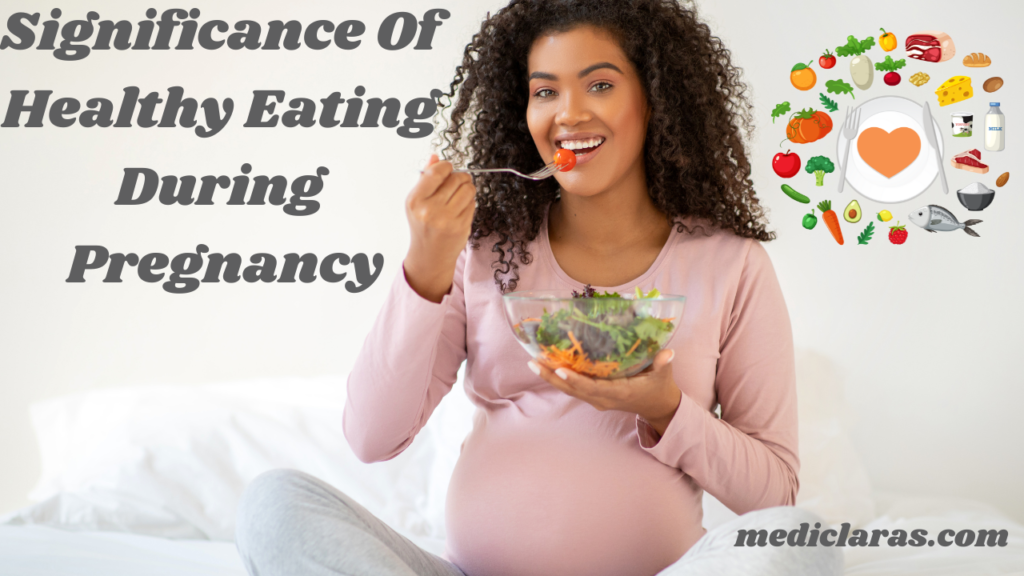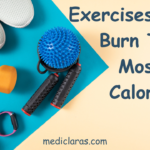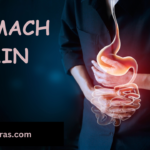Maintain a healthy diet during pregnancy: At any time ,a healthy diet
is crucial in maintaining a healthy lifestyle and well being_ but it is
particularly crucial if you’re pregnant or trying to conceive. Eating a
nutritious diet while pregnant will support your baby development and
growth.
While a special diet is not necessary it is crucial to consume a diverse
range of foods daily to ensure that you and your baby receive the
appropriate balance of nutrients.
While obtaining vitamins and minerals from your diet is ideal during
pregnancy it’s necessary to take a folic acid supplement to ensure you
are getting all the nutrients. Here’s a more detailed look at the
significance of healthy eating during pregnancy.
Significance For Mother
A healthy eating during pregnancy is crucial for both mother and the
developing baby.
Support maternal well being
A balanced diet supplies energy and nutrients essential for supporting
the mother’s body throughout pregnancy helping to prevent nutrient
deficiencies and promoting overall health.
Preventing Pregnancy Problems
Healthy diet can lower the chances of pregnancy complications such as
Gestational diabetes , preeclampsia and iron deficiency anemia.
Preparing for Delivery
A Nutritious diet powers the body getting ready for the physical
challenges of labor and delivery.
After Pregnancy Healing If a mother eats a balanced diet during pregnancy this can help her body
to recover faster after childbirth.
Healthy gain in weight
Eating a healthy nutritious diet during pregnancy helps the mother to
gain a healthy amount of weight gain which is important for mother and
fetus health.
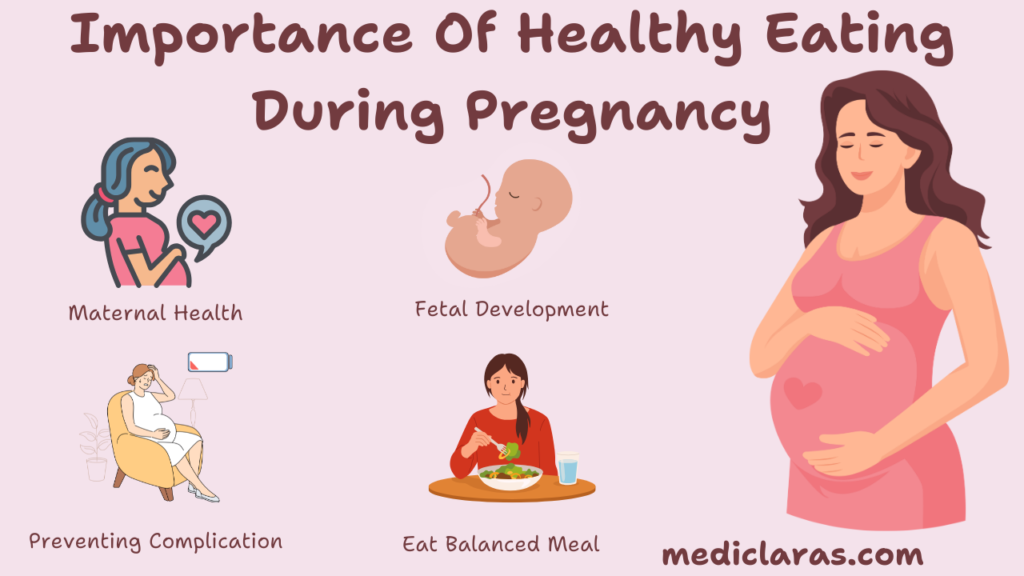
Significance for Baby
Normal Fetal growth
A balanced diet provides the fetus with essential nutrients needed for
proper organ tissue and nervous system development.
Prevent Birth defects
Lack of certain nutrients such as folic acid and iodine can result in
severe birth defects.
Long term protection
The nutrition a mother receives during pregnancy can have effects on
her child’s health and development potential affecting their risk of chronic
diseases in later life.
For Healthy Newborn weight
Adequate nutrition contributes to the baby being born at a healthy weight
which provides long term health benefits.
For healthy immune response
A balanced diet lowers the chances of infections and illness by
strengthening the immune system.
Nutrients you need for a healthy pregnancy
● To reduce the risk of defects in the neural tube of newborn infants
,folic acid is very important.
● Iron is essential to fulfill increased oxygen demand and reduce risk
of anemia.
● Calcium is essential for supporting the development of bones and
teeth in both mother and child.
● For the formation of tissues and organs, protein is important
● For proper function of thyroid and brain growth , iodine should be
included in diet.
● Omega -3 fatty acids that are significant for the baby brain and eye
development.
● To support the immune system and to absorb calcium, vitamin D is
needed.
Healthy Eating During Pregnancy
For healthy pregnancy following foods should be included:
Eat fruits and vegetables:
Consuming a large amount of fruits and vegetables as they offer
vitamins, minerals and fiber beneficial for digestion may help avoid
constipation.
Eat Carbohydrates
Starchy cheap foods provide energy, certain vitamins and fiber they
provide satiety without excessive calories. Carbohydrates found in
bread, potatoes, breakfast cereals , rice ,pasta, noodles, oats and yams.
Eat Proteins
Everyday consumes some foods that are rich in protein .protein can be
found in:
Pulses
Legumes
Fish
Eggs
Dairy food in pregnancy
Dairy products like milk cheese and yogurt are crucial during pregnancy
as they provide calcium and other essential nutrients for both you and
your baby.
Eat Healthy Snacks During Pregnancy
If you feel hungry between meals avoid snacks that are high in fat or
sugar like sweets ,crisps, biscuits or chocolate. Always choose the healthy
options like :
Sandwiches or cheese filled bread
Lean ham
Salad ingredients like carrot or cucumber
Plain yogurt or yogurt with less sugar
Figs or apricots
Vegetables soup
Milky beverages
Fresh fruits
Maintain Hydration
To stay hydrated during pregnancy is very important to prevent
dehydration. Consume a variety of liquids to fulfil the water requirements.
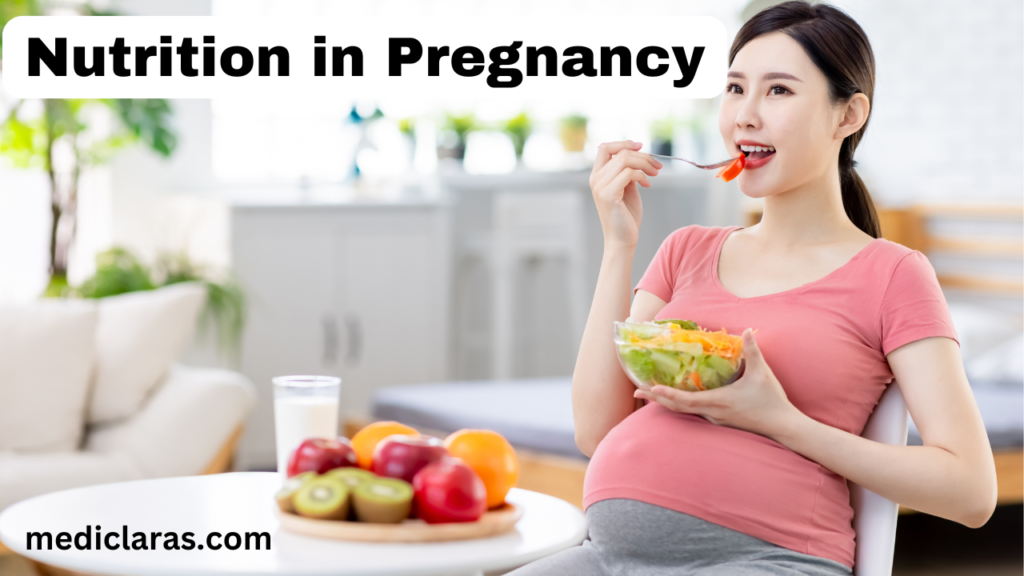
Foods to avoid during pregnancy
During pregnancy certain foods should be avoided to prevent the baby
and mother from certain harms . These foods are following:
Limit Alcohol
Do not use alcohol as it has dangerous effects on the developing fetus.
Limit highly processed and sugary items
These foods offer little nutritional value and contain unhealthy fats and
sugars .So avoid these type of foods to prevent from health problems
Stay away from some fish
Certain fishes like shark and swordfish have high levels of mercury
which can affect the developing baby. So avoid such types of fishes in
diet.
Avoid unpasteurized items
Do not use unpasteurized milk or other products because they have
harmful bacteria, which can create health problems.
Avoid undercooked foods
Do not use raw meat, poultry, seafood or eggs. Because they contain
harmful bacteria which can affect the developing fetus.
Avoid caffeine
Consuming high amounts of caffeine might be dangerous for the
developing baby.
Safe Food Handling in Pregnancy
● Before consuming any fruit, vegetable and salads, always wash
them to eliminate the soil traces which contain Because these are
harmful for the unborn baby.
● After handling the raw foods like poultry, raw meat, fish or eggs,
always clean your hands, surfaces and utensils to prevent the risk
of foodborne illness .
● To cut the raw meat utilize a different knife and cutting board.
● Always check expiry date to confirm that food is safe to
consume, avoid eating foods that are expired even if they appear
fine .
Consume a healthy diet to manage pregnancy symptoms
Some pregnancy symptoms like nausea or vomiting occur in early
stages of pregnancy.it also called morning sickness occur when you feel
fatigued or hungry.
Focus on eating as nutritious or healthy as possible. At early stages of
pregnancy nutrition requirement is minimal, so nausea and vomiting do
not lead to significant nutritional issues. However ,if you experience
severe vomiting and cannot retain any food or liquid, it’s important to
contact your midwife for guidance.
Following are the effective ways to manage pregnancy symptoms:
● Consume smaller meals or snacks frequently.
● Avoid the intake of foods that are high in fat and spicy.
● Eat carb- based snacks( like a piece of dry toast, a cracker) early in
the morning to prevent morning sickness.
● Consume a small amount of flat lemonade or ginger.
● Incorporate ginger or dishes seasoned with ginger into your diet.
● Allow yourself additional time in the morning, as hurrying can
worsen your condition.
● Aim to get more rest.
Healthy Weight Gain in Pregnancy
The amount of weight you should gain during your pregnancy varies
based on your health and your pre pregnancy weight:
If you had a healthy weight before becoming pregnant again of
approximately 25 to 35 pounds is recommended.
If you were below a healthy weight prior to pregnancy you should aim to
gain more weight.
If you were obese before pregnancy, your weight gain should be less.
Consult with your health care provider to determine what amount of
weight gain during pregnancy is suitable for you. Weight gain should
occur gradually throughout your pregnancy, with the majority happening
in the final trimester.
Calorie Needs During Pregnancy
Calories needed during pregnancy depend on your aims for weight gain.
Your healthcare provider can advise you on what those goals should be,
considering factors like your pre-pregnancy weight, your age, and your
rate of weight gain. Generally, the recommendations are as follows:
During the first prime Minister you likely do not require additional
calories.
During the second term you typically need approximately 340 additional
calories daily.
During the third semester you may need about 450 additional calories
per day.
In the last weeks of pregnancy you might not need additional calories.
Remember that not all calories hold the same value. It is important to
consume nutritious foods that are nutrient rich.

